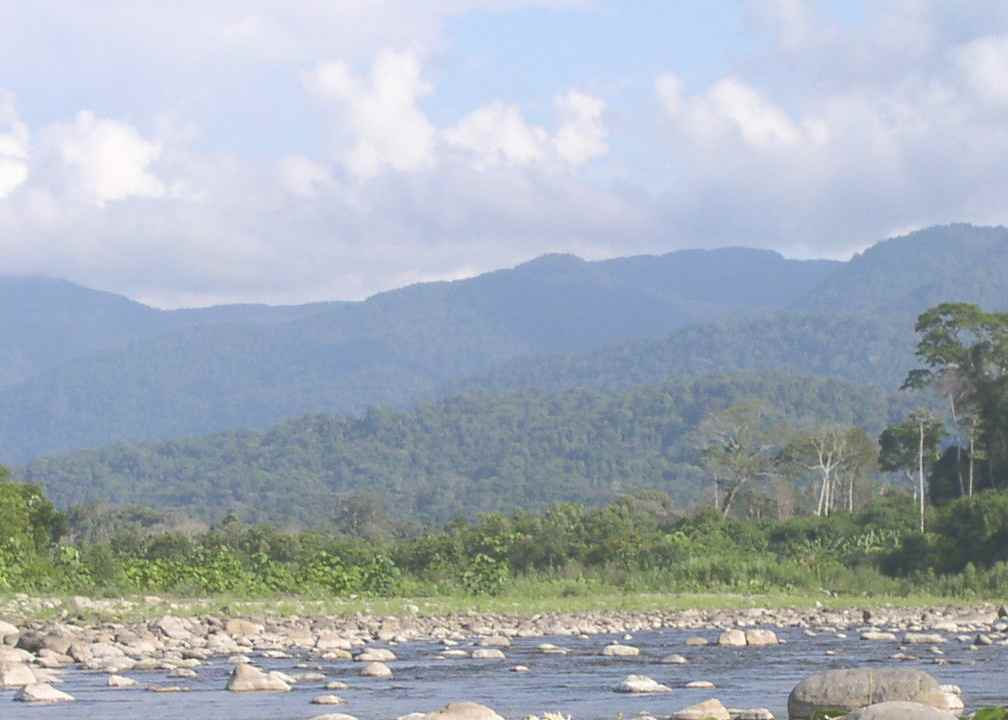
 Cabeceras Aid Project
Cabeceras Aid Project
 Cabeceras Aid Project
Cabeceras Aid ProjectPosted: December 28, 2017
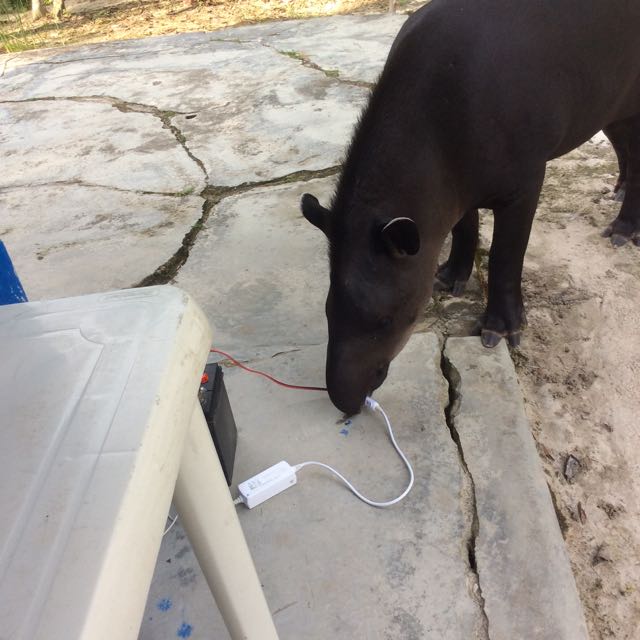 Dear Friends of Cabeceras Aid Project,
Dear Friends of Cabeceras Aid Project,
As 2017 draws to a close, it is my great pleasure to share with you this short update on Cabeceras' activities and accomplishments over the course of this year. Please read on to find out what we've been doing lately — and please consider making a year-end online donation to Cabeceras to support our unique and effective work with various small indigenous communities in Amazonia.
To those of you who have already supported us so generously this year, thank you! We'll do excellent things with your donations again in 2018!
With best regards,
Chris
P.S. To bring you a smile, at right is a picture of Pancha, the resident pisíki (tapir) in San Antonio de Pintuyacu, who is very friendly and curious, who understands Iquito as well as she understands any human language... and who, as you can see, likes to taste warm power cables.
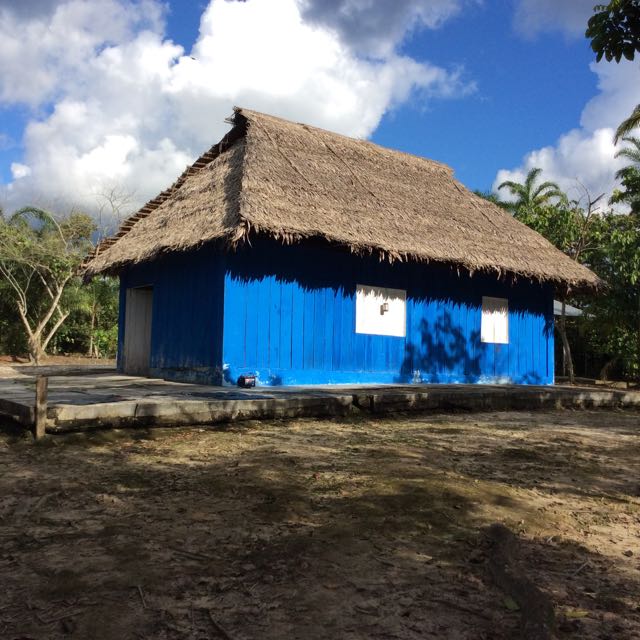 Over the last few years, the main focus of Cabeceras' language documentation and revitalization work has been our collaboration with our Ikíitu (Iquito) friends and colleagues in the Ikíitu community of San Antonio de Pintuyacu, in Loreto, Peru. Because of the advancing age of our two remaining beloved speaker-teachers, Ema Llona Yareja and Jaime Pacaya Inuma (shown below, working with me on texts), Lev and I have prioritized fieldwork for the ILDP since 2014. In 2017, we continued our collaborations in San Antonio over the course of two lengthy visits.
Over the last few years, the main focus of Cabeceras' language documentation and revitalization work has been our collaboration with our Ikíitu (Iquito) friends and colleagues in the Ikíitu community of San Antonio de Pintuyacu, in Loreto, Peru. Because of the advancing age of our two remaining beloved speaker-teachers, Ema Llona Yareja and Jaime Pacaya Inuma (shown below, working with me on texts), Lev and I have prioritized fieldwork for the ILDP since 2014. In 2017, we continued our collaborations in San Antonio over the course of two lengthy visits.
First, I spent the month of February at our language center in San Antonio (shown at left), working on two focal tasks: developing our collection of transcribed and translated Iquito texts, and teaching community language classes. Because the village school is on vacation during February, these classes were well-attended by kids, teens, and adults alike, and we had lots of fun learning Iquito through games and activities, as well as more traditional classroom lessons (see pictures below).
Then, Lev and I spent the months of June and July working in San Antonio together. While I continued the same activities mentioned above, Lev focused on lexical work and grammatical description; plus, he and I put our heads together to solve the complex mysteries of how tones pattern in Iquito verbs.
Taking a broader view, as we progress with our linguistic work, we are producing more and better teaching/learning materials, some of which you can see here; and I am also gradually making more and more audio and video materials available to community members, in addition to print materials, since multi-sensory language learning is both more fun and more effective. All in all, our stays in San Antonio in 2017 were excellent, and we are excited about going back there again in 2018!
Looking forward to 2018: Again next year, we will be able to make two lengthy visits to San Antonio. I will spend a month in the village in February (plus an additional month writing in Iquitos); and Lev and I will spend two-plus months there between late May and early August. These visits will be similar in structure and focus to our recent visits — exciting research intertwined with fun and rewarding community service.
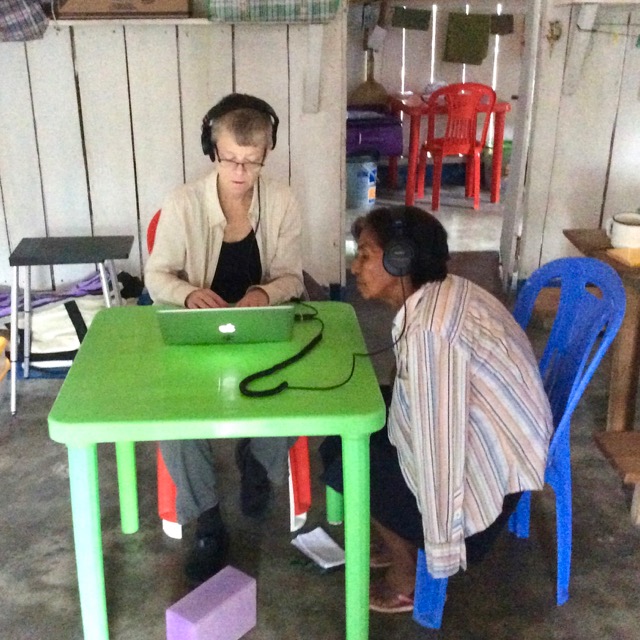 |
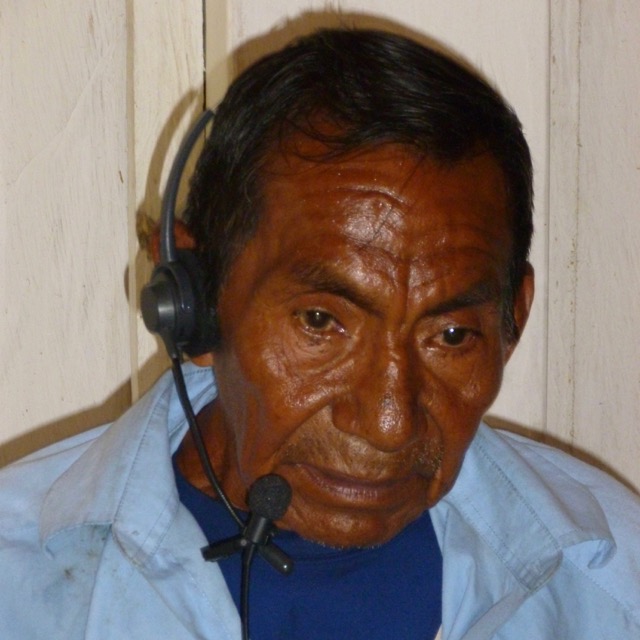 |
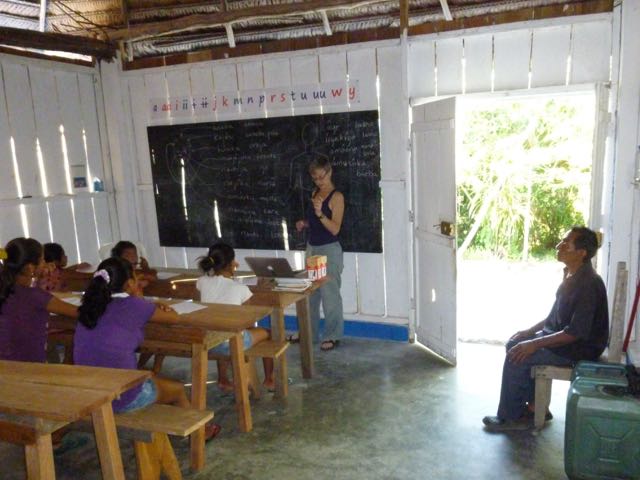 |
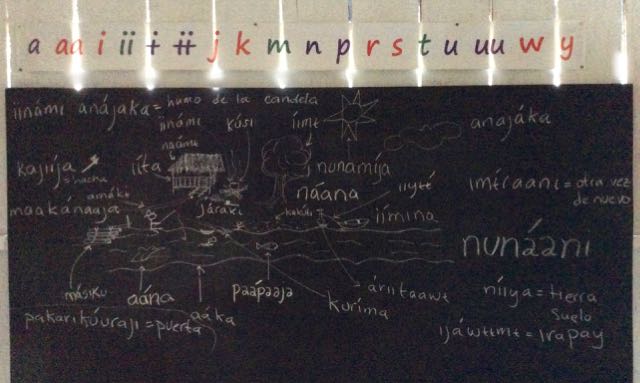 |
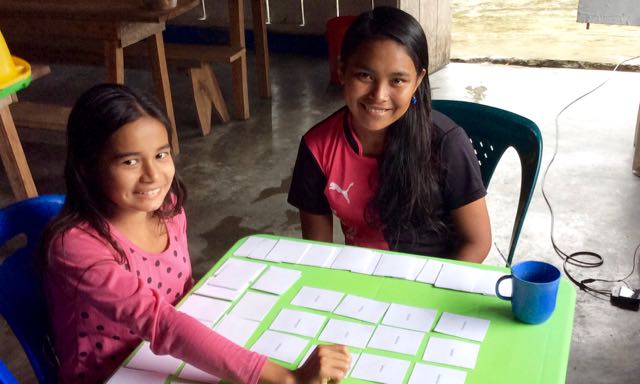 |
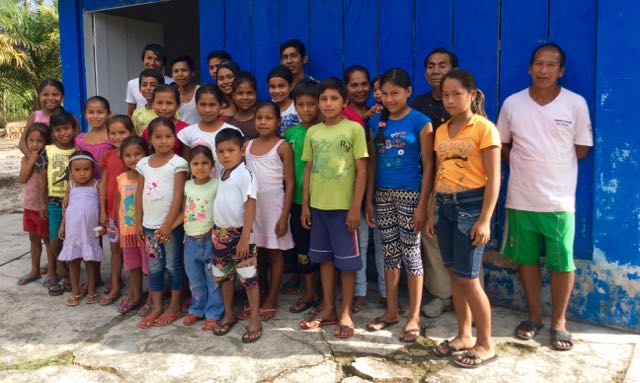 |
In May of this year, Lev and I were able to make another short visit to Nueva Vida, the Máíhuna community where our language research and revitalization work has been based since 2009, in order to keep our friendships there strong, as well as to do a bit of exciting research; and to organize some much-needed house repairs for our language center there (shown below). In the domain of community service, again this year, Cabeceras provided small-scale but crucial funds to support the often-life-saving work of the local health post.
In the domain of cool and ground-breaking research, Lev was able to gather some high quality data on nasal and oral airflow when speakers speak Máíhiki (shown below), which is a fascinating but still poorly-understood phenomenon in languages like Máíhiki that have contrastive nasality. These data are part of a multi-language research project that Lev is developing with other Amazonianists and researchers at UC Berkeley.
Looking forward: At this point, we are planning our next visit to Nueva Vida for May of 2019, since we already have a full set of commitments for 2018.
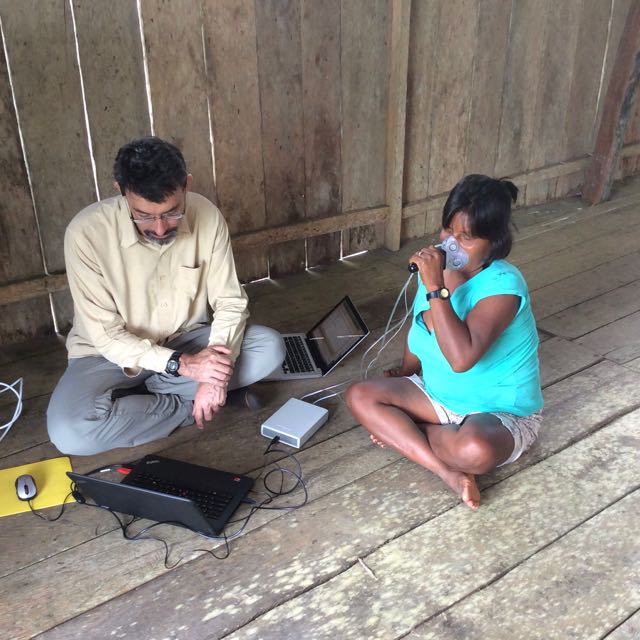 |
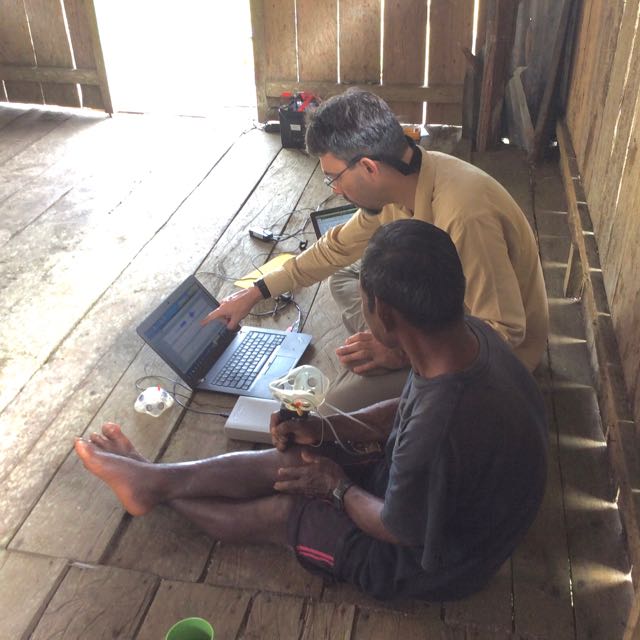 |
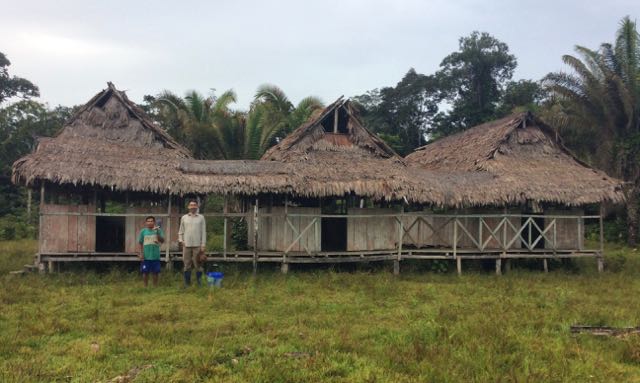 |
|
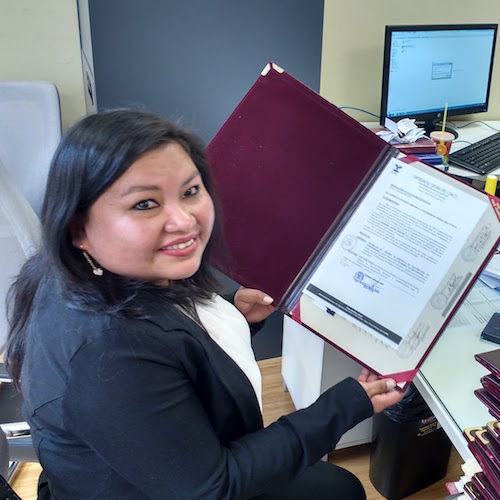 This year, our current scholarship recipient Maribel Kaibi Omenki passed two huge milestones: first, she finished her year-long clinical internship sequence in June; and then she received her bachillerato (bachelor's degree) in Nursing in August.
This year, our current scholarship recipient Maribel Kaibi Omenki passed two huge milestones: first, she finished her year-long clinical internship sequence in June; and then she received her bachillerato (bachelor's degree) in Nursing in August.
Congratulations, Maribel! Felicitaciones! Kametitake!
As you may recall, Cabeceras' Nathaniel Gerhart Memorial Scholarship Fund has been supporting Maribel Kaibi Omenki in pursuing her professional credentials in Nursing at the Universidad Andina in Cusco, Peru, since 2012. Maribel is a Matsigenka woman from the community of Koribeni in Peru's upper Urubamba River Valley, who received her scholarship from our program precisely because she already had both post-high-school training and professional work experience in community-directed healthcare. As a result of her talents combined with her dedication, Maribel has been especially successful in her Nursing program. She is pictured here on the day she received her bachillerato.
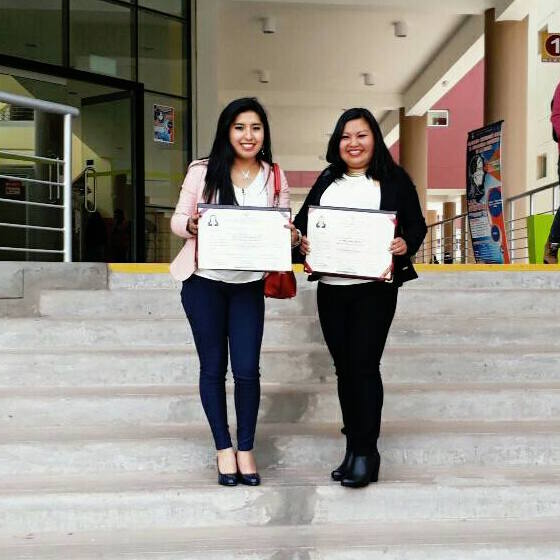 Now that she has finished all of her coursework and has her degree, Maribel in the process of writing her thesis, which focuses on how well the health center in her home community of Koribeni meets the needs of the Matsigenka residents of that community, especially in the areas of locally- and culturally-appropriate healthcare. This is an important research topic, she told me, because she knows of no other study that evaluates the appropriateness of government-provided health services in Matsigenka communities.
Now that she has finished all of her coursework and has her degree, Maribel in the process of writing her thesis, which focuses on how well the health center in her home community of Koribeni meets the needs of the Matsigenka residents of that community, especially in the areas of locally- and culturally-appropriate healthcare. This is an important research topic, she told me, because she knows of no other study that evaluates the appropriateness of government-provided health services in Matsigenka communities.
Looking forward to 2018: Maribel will complete her thesis next June, and after that, she will obtain her Licenciatura (registered title) in Nursing — the final step in her long University training program. At that point, she will be able to begin working as Nurse, the first phase of which will be a service program run by the Peruvian Ministry of Health that will place her in one of the Matsigenka communities that has a government-run health center. Maribel tells me that she alrleady feels very ready to get out of the city and get back to the work of providing culturally appropriate health care in Matsigenka communities!
Amazónicas is a bi-annual conference focused on Amazonian languages that began in 2007, in Manaus, Brazil. In order to facilitate the participation of scholars from Amazonia and its home countries, each of the six Amazónicas gatherings so far has been hosted in a different place in South America. The sixth conference, held in May of 2016, was hosted in the twin cities of Leticia, Colombia and Tabatinga, Brazil (pictures below) and was considered a great success by organizers and attendees alike.
Because a fundamental aspect of the vision of Amazónicas is to support both international collaboration and local participation in excellent scholarship on and with Amazonian languages, there has a been growing need to establish a small but durable financial foundation from which to develop future Amazónicas conferences. In February of this year, the opportunity arose for Cabeceras to provide logistical support for the development of that foundation, by facilitating a fundraising campaign and creating a dedicated fund for building Amaózonicas' local infrastructure. We are delighted to be a part of the collaborative effort to grow this valuable conference!
The next conference, Amazónicas 7, will take place in Baños, Ecuador from May 28 until June 1, 2018. More information on the conference is available here, and the link to make a donation and become a 'Friend of Amazónicas' is here.
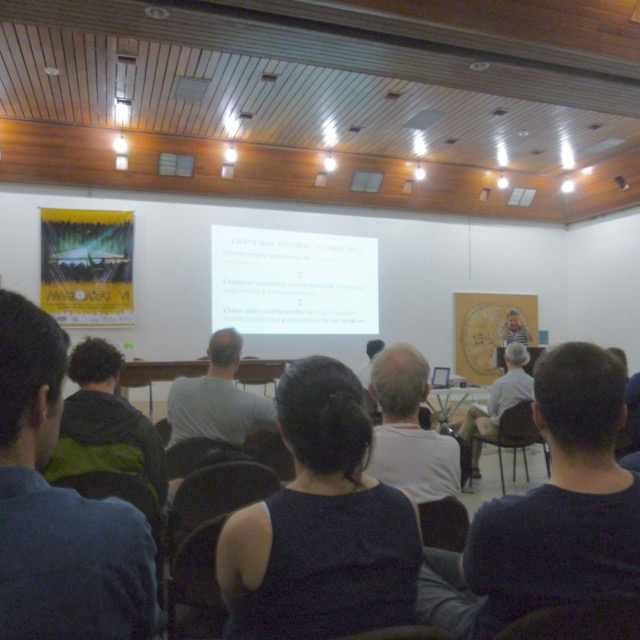 |
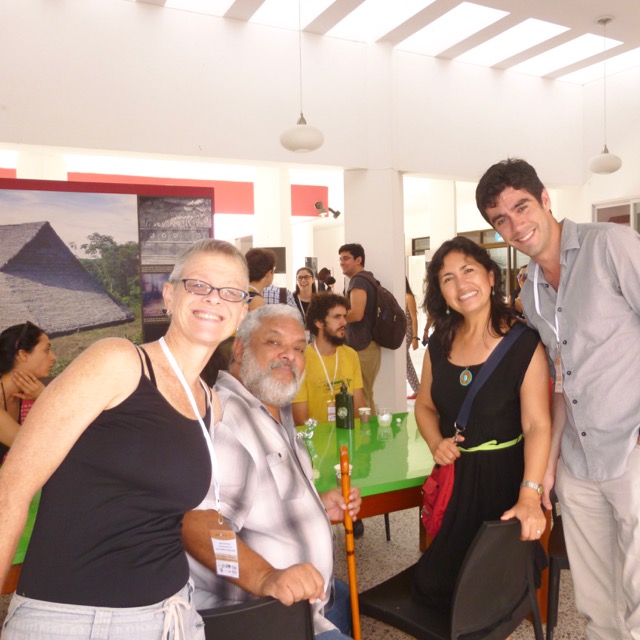 |
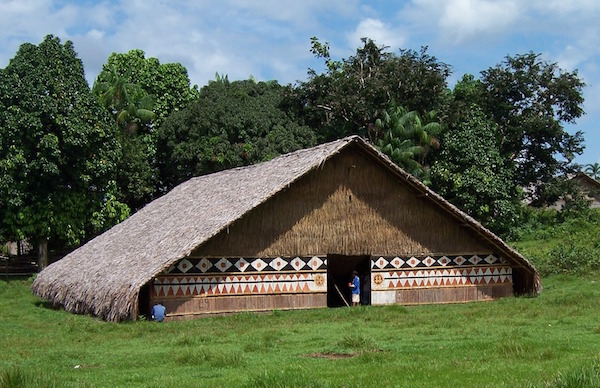 Creating and distributing more teaching/learning materials for more small languages in Amazonia
Creating and distributing more teaching/learning materials for more small languages in Amazonia
In January, Cabeceras will be evaluating some funding requests to cover the relatively modest costs of printing new language teaching/learning materials for a few small Amazonian languages that we haven't had the opportunity to support before now. This is another exciting way for us to help build better bridges between linguistic scholarship and community service, so we're excited about the possibilities for new work in this area. Stay tuned for more news!
Rebuilding a Kotiria longhouse
In addition, a proposal is on its way to Cabeceras to support the rebuilding of a Kotiria longhouse (pictured at right) that was destroyed by fire in central Brazil. This longhouse has been an integral part of community life in the village, so rebuilding it has both symbolic and practical importance. Again, stay tuned for more news on how this develops!
That's all of our news for now! I'd like to close by expressing our sincere thanks to you for your ongoing support of Cabeceras. Cabeceras is a small-scale organization, with clear goals and time-tested strategies that are brought to life by a small team of dedicated volunteers, using a small but carefully-spent budget. All of our work is heartfelt — and so is our gratitude to every one of our donors and supporters. Thank you for being a part of Cabeceras!
Sincerely,
Chris
Dr. Christine Beier
Secretary, Treasurer, co-Founder, and Fieldworker
Cabeceras Aid Project
5859 Braesheather Drive
Houston TX 77096-3933
www.cabeceras.org
Donate! at Cabeceras' secure page at networkforgood.org
 Back to top
Back to top